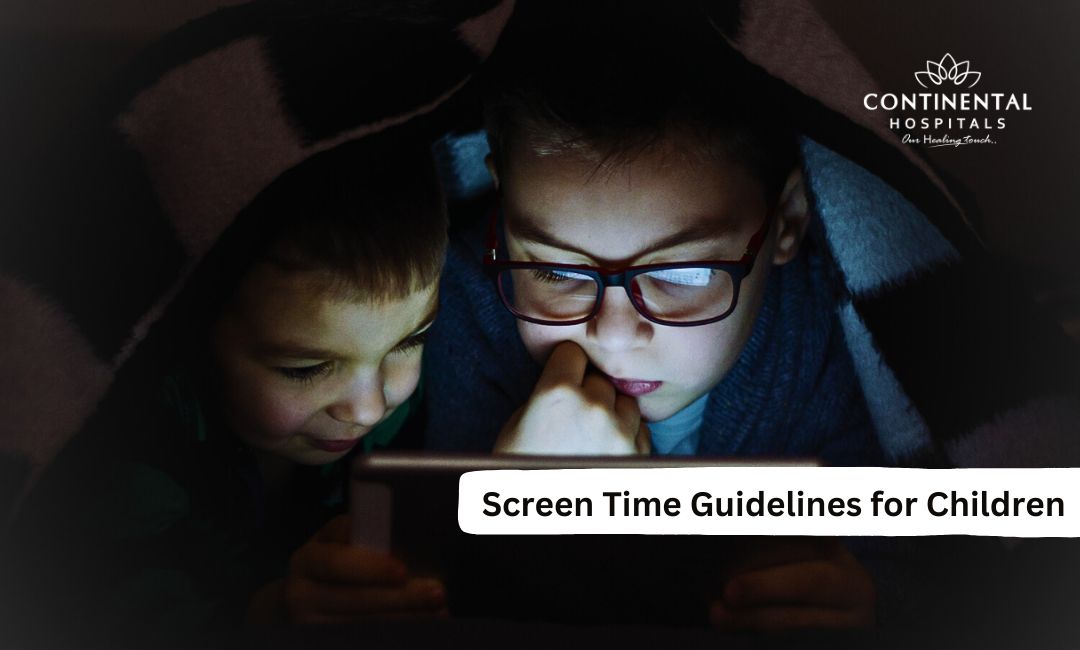In today's digital age, children encounter screens ubiquitously, from smartphones to tablets and televisions. While these devices provide avenues for education and entertainment, prolonged exposure can detrimentally impact children's health and well-being. Excessive screen time has been associated with various adverse effects, including physical health concerns like obesity due to sedentary lifestyles, disrupted sleep patterns, and hindered cognitive development. Moreover, behavioral issues such as aggression and attention deficits have been linked to excessive screen usage. Thus, it's crucial for parents and caregivers to establish screen time guidelines to mitigate these risks and promote a balanced lifestyle for children. By setting limits, prioritizing quality content, and encouraging alternative activities, caregivers can help children navigate the digital landscape responsibly while safeguarding their overall health and development.
Understanding the Impacts of Screen Time
Excessive screen time has been associated with various negative impacts on children, including:
Physical Health: Prolonged screen time can lead to a sedentary lifestyle, contributing to obesity and related health issues. Children may spend less time engaging in physical activities, leading to decreased fitness levels and increased risk of chronic diseases.
Sleep Disruption: The use of screens before bedtime can interfere with sleep quality and duration. The blue light emitted by screens can disrupt the production of melatonin, a hormone that regulates sleep-wake cycles, leading to difficulty falling asleep and poor sleep patterns.
Cognitive Development: Excessive screen time may hinder cognitive development in children, affecting attention span, memory, and problem-solving skills. Screen-based activities often lack the sensory experiences and social interactions that are essential for healthy brain development.
Behavioral Issues: Research suggests a link between excessive screen time and behavioral problems such as aggression, hyperactivity, and attention deficit hyperactivity disorder (ADHD). Screen-based activities can overstimulate the brain and interfere with self-regulation.
Creating a Balanced Media Diet in Children
To promote healthy development and well-being, parents and caregivers should strive to create a balanced media diet for children. Here are some tips:
Set Limits: Establish clear guidelines for screen time, including duration and types of content allowed. The American Academy of Pediatrics recommends limiting screen time to one hour per day for children aged 2 to 5 years and ensuring that screen time does not interfere with sleep or physical activity.
Prioritize Quality Content: Choose age-appropriate, educational, and interactive media content for children. Look for programs, apps, and games that promote learning, creativity, and social interaction.
Encourage Alternative Activities: Encourage children to engage in a variety of non-screen activities such as outdoor play, reading, arts and crafts, and socializing with peers. Limiting screen time allows children to explore their interests and develop important life skills.
Lead by Example: Be mindful of your own screen use and model healthy media habits for your children. Set designated screen-free times and areas in the home, such as during meals and before bedtime.
Nurturing Healthy Screen Habits in Children
In addition to setting limits and promoting quality content, parents can foster healthy screen habits in children by:
Engaging in Co-Viewing: Watch and interact with your child during screen time. Use media as an opportunity for bonding, discussion, and learning. Ask open-ended questions, encourage critical thinking, and provide context for the content.
Teaching Digital Literacy: Educate children about the potential risks and benefits of technology use. Teach them to critically evaluate media content, recognize advertising and misinformation, and practice responsible online behavior.
Establishing Screen-Free Zones: Designate certain areas of the home, such as bedrooms and dining areas, as screen-free zones. Create opportunities for face-to-face interactions and family bonding without the distraction of screens.
Setting Screen Time Rules: Involve children in establishing screen time rules and consequences. Encourage them to take breaks and engage in other activities to avoid prolonged screen use.
Addressing Common Concerns
As parents navigate the challenges of managing screen time, they may encounter common concerns such as:
Resistance and Tantrums: Children may resist screen time limits and exhibit tantrums or meltdowns. Stay firm but compassionate in enforcing rules and offer alternative activities to distract and engage them.
Peer Pressure: Children may feel pressure to keep up with their peers' screen habits or access inappropriate content. Foster open communication and establish trust so that children feel comfortable discussing their experiences and concerns.
Parental Guilt: Parents may experience guilt or anxiety about their children's screen time habits. Remember that setting limits and promoting balance is essential for their health and development. Seek support from other parents and healthcare professionals if needed.
Screen Addiction: Excessive screen time can lead to addictive behaviors and dependency. Monitor children's screen use closely and seek professional help if you notice signs of addiction, such as withdrawal symptoms and preoccupation with screens.
Reach Out to the Children's Clinic Today
If you have concerns about your child's screen time habits or need guidance on promoting healthy media use, don't hesitate to reach out to the children's clinic. Healthcare professionals can provide personalized advice, resources, and support to help you navigate the challenges of raising children in the digital age. Together, we can work towards ensuring the well-being and healthy development of your child in today's screen-centric world.
Conclusion
In conclusion, while screens can offer valuable educational and entertainment opportunities, it's essential to establish screen time guidelines, prioritize quality content, and nurture healthy screen habits in children. By understanding the impacts of screen time, creating a balanced media diet, and addressing common concerns, parents can support their children's health, development, and well-being in the digital age. Don't hesitate to seek guidance from healthcare professionals for personalized support and advice.
Related Blog Articles-
.webp)







